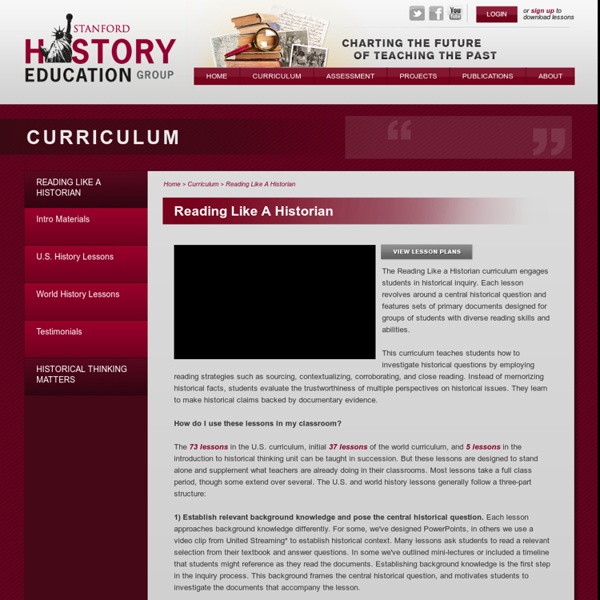SearchReSearch: Answer: Fake or real? How do you know?
1. Is this a faked photo? If so, how can you tell? (Be specific.) The obvious thing in the picture is the jet fighter in the upper left. (Let's not start to wonder whether or not all of the buildings in the scene are actually just as they are...
SearchReSearch: Search Challenge (11/11/15): Fake or real? How do you know?
Unfortunately... ... people have been faking stories, photos, and claims for as long as humans have been around. Of course now we're aided by technology, which sometimes makes these deceptions a bit more difficult to ferret out. Here's an early famously faked photograph:
How Photos Fuel the Spread of Fake News
During a campaign stop in South Carolina last winter, Hillary Clinton stumbled as she climbed the steps of an antebellum mansion in Charleston. Aides helped her regain her balance in a vulnerable but nondescript moment captured by Getty photographer Mark Makela. He didn’t think much of it until August, when the alt-right news site Breitbart touted it as evidence of Clinton’s failing health. “It was really bizarre and dispiriting to see,” he says.
10 Hilarious Hoax Sites to Test Website Evaluation – TeachBytes
In this day and age, where anyone with access to the internet can create a website, it is critical that we as educators teach our students how to evaluate web content. There are some great resources available for educating students on this matter, such as Kathy Schrock’s Five W’s of Website Evaluation or the University of Southern Maine’s Checklist for Evaluating Websites. Along with checklists and articles, you will also find wonderfully funny hoax websites, aimed at testing readers on their ability to evaluate websites.
10 Ways to Spot a Fake News Article - EasyBib Blog
For many of us, 2016 is going down as a year to forget. Election upsets, Zika, the Syrian crisis, and unfortunately tons of fake news about all of the above and everything in between. Denzel Washington was recently quoted as saying, “If you don’t read the newspaper, you’re uninformed. If you do read the newspaper, you’re misinformed.”
Evaluating Websites - AndySpinks.com
C.A.R.S. Checklist for Evaluating Internet Sources You should evaluate every website you use for research or for personal information. Ask yourself the following questions about each site and try to use only those that have the best evidence of credibility, accuracy, reasonableness, and support. Download a Printable Version (PDF) Goal: A source that is created by a person or organization who knows the subject and who cares about its quality
History Lessons
The Reading Like a Historian curriculum engages students in historical inquiry. Each lesson revolves around a central historical question and features a set of primary documents designed for groups of students with a range of reading skills. This curriculum teaches students how to investigate historical questions by employing reading strategies such as sourcing, contextualizing, corroborating, and close reading. Instead of memorizing historical facts, students evaluate the trustworthiness of multiple perspectives on historical issues and learn to make historical claims backed by documentary evidence.
Practice: Evaluating Purpose - EasyBib Blog
Evaluating the Purpose of a Website It’s important to figure out the purpose of a website because it’s not always clear what the author’s intent is. There are some red flags you should look out for when evaluating online sources. We will review what these are so you know what to pay attention to! The design of a website can be professional and have great navigation, but the content could be skewed, misinformed, or even completely false. Who or What is Behind the Content?
Slavery and the Making of America . For Teachers . Primary Sources
WPA Slave Narratives documents/wpa.html In the 1930s, the Works Progress Administration sponsored a Federal Writers' Project dedicated to chronicling the experience of slavery as remembered by former slaves. Their stories were recorded and transcribed.
Teaching Adolescents How to Evaluate the Quality of Online Information
An essential part of online research is the ability to critically evaluate information. This includes the ability to assess its level of accuracy, reliability, and bias. In 2012, my colleagues and I assessed 770 seventh graders in two states to study these areas, and the results definitely got our attention. Unfortunately, over 70 percent of the students’ responses suggested that: Middle school students are more concerned with content relevance than with credibility They rarely attend to source features such as author, venue, or publication type to evaluate reliability and author perspective When they do refer to source features in their explanations, their judgments are often vague, superficial, and lacking in reasoned justification
How to Teach Internet Research Skills
With mobile connectivity so pervasive, it’s not surprising that app-based interfaces and searching strategies are dominating research methods, especially for always-connected youth. “They are most likely to begin searching on the most accessible device using a search engine like Google,” says Crystle Martin, postdoctoral research fellow at the Digital Media and Learning Hub at University of California, Irvine. “Mobile connectivity and mobile platforms have made search more ubiquitous.
How Wikipedia Tackles Fringe Nonsense
Wikipedia is an interesting experiment in amateur crowdsourcing of information. I think it is a massively successful experiment, but it faces specific challenges. This page on Wikipedia discusses their approach to what information they allow to remain in their pages. They have a number of policies and practices that are meant to act as a quality control filter.



